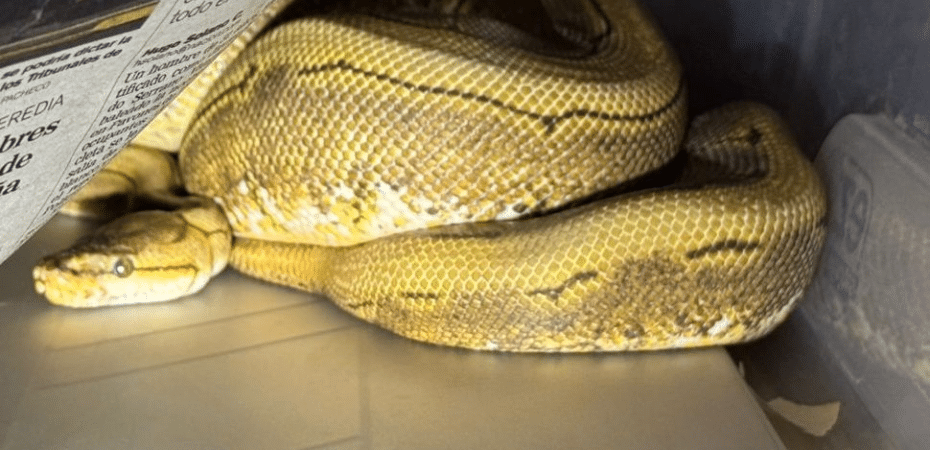
2024 Closes With Almost 200 Animal Trafficking Complaints In Costa Rica
At a global level, the illicit use of the environment is only surpassed by the profits from human trafficking and drug trafficking. In the national case, the financial impact has not yet been quantified, but the logistics are already raising alarms in the authorities.
“In Costa Rica, practically everything is trafficked here,” says Zúñiga.“There have already been 200 complaints this year of what is animal trafficking”; The hierarch said about the data for 2024.
Technology, a key piece of environmental crimesIn the context of environmental crimes, in mid-December, the information came from a man who was detected for having activated the sale of species on social networks .
The investigation concluded with the seizure of an iguana and 15 snakes, including a species native to Sri Lanka. They also took a monitor lizard (a species of exotic lizard).
In other cases, the menu of environmental crimes is broader. Both live and stuffed animals are traded, as well as pupae and even bones. The director of the OIJ gives as examples files on foxes, beetles, larvae, butterflies and even crocodiles.
And what sanctions are there?For cases of environmental crimes associated with animal trafficking, the Wildlife Conservation Law has established some criminal types for their sanction. The first is Article 95. This penalizes the trade, business, trafficking and transfer of wild animals, their products and derivatives, without the permits as follows:
From 10 to 40 base salaries (¢4.6 to ¢18.4 million) or a prison sentence of 1 to 3 years if it involves small or endangered species. With a fine of 1 to 5 base salaries (¢462,000 to ¢2.3 million) or a prison sentence of 4 to 6 months if the animals do not have a declaration of risk. In both cases the sanction also includes the confiscation of the animals and their products.
The other sanction figure for environmental crimes is in Article 96. There the focus is the export or import of wild animals, their products and derivatives, without the respective permit.
For them, confiscation is carried out, accompanied by the following penalties:10 to 40 base salaries (¢4.6 to ¢18.4 million) or a prison sentence of 1 to 3 years when it concerns species whose populations have been declared as reduced or in danger of extinction. Also if they are on the international Cites list.
Penalty of 1 to 5 base salaries (¢462,000 to ¢2.3 million) or a prison sentence of 4 to 8 months if they are not alert animals.->At Resonance, we aspire to live in harmony with the natural world as a reflection of our gratitude for life. Visit and subscribe at Resonance Costa Rica Youtube Channel @resonanceCR
Legal Disclaimer:
MENAFN provides the information “as is” without warranty of any kind. We do not accept any responsibility or liability for the accuracy, content, images, videos, licenses, completeness, legality, or reliability of the information contained in this article. If you have any complaints or copyright issues related to this article, kindly contact the provider above.






















Comments
No comment